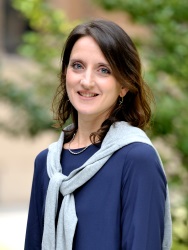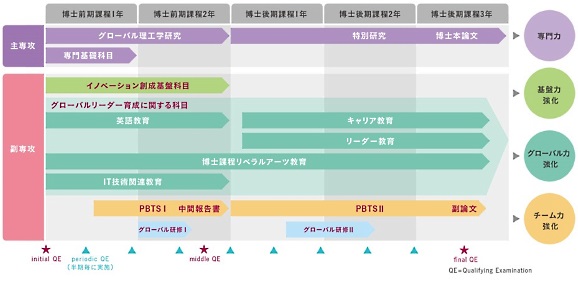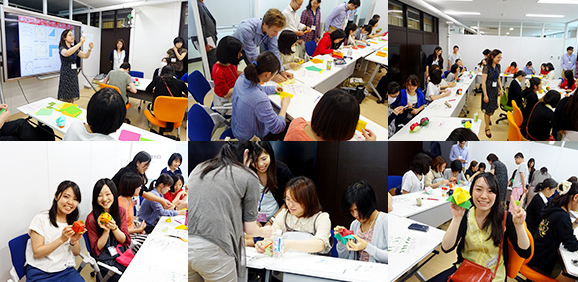 イノベーションを起こす人材となるための要件は、専門分野において学位を授与されるレベルの深い専門性をもち、物理・数学・情報の異なる専門分野にまたがる新たな課題を見出し解決していくだけの基盤力を有することです。グローバル理工学副専攻では、基盤力強化のためのコースワーク(イノベーション創成基盤科目)を設置しています。
イノベーションを起こす人材となるための要件は、専門分野において学位を授与されるレベルの深い専門性をもち、物理・数学・情報の異なる専門分野にまたがる新たな課題を見出し解決していくだけの基盤力を有することです。グローバル理工学副専攻では、基盤力強化のためのコースワーク(イノベーション創成基盤科目)を設置しています。
この度、このコースワークから、Essential Bioinformatics for Global LeadersⅠを開講することになりました。講師は、お茶の水女子大学プロジェクト教育研究院のGouraud特任准教授が担当します。
この科目は、グローバル理工学副専攻の履修科目になっていますが、博士前期・後期課程に所属する学生で関心のある方は、どなたでも履修することができます。なお、講義は英語で行われます。
本講座の趣旨
Bioinformatics is an interdisciplinary research area at the interface between biological science and computational science, the ultimate goal of which is to better understand living cells and their functioning at the molecular level. It involves the technologies that use computers for the storage, retrieval, manipulation, understanding and distribution of information related to biological macromolecules such as DNA, RNA, protein, and even more.
The “Essential Bioinformatics for Global Leaders I” classes has been conceived for non-biologist as well as biologist students wishing to acquire global leader skills and enrich their scientific English. This first series of interactive classes, given in friendly English, will provide the students with the fundamental cellular and molecular biology knowledge needed to understand bioinformatics. Important notions of bioinformatics, its logical background and its cutting-edge applications in basic biology research, biotechnology and biomedical sciences will also be introduced. The classes include lectures, discussion and practices [wet lab (basic molecular biology experiments) and dry lab (databases exploration, data analysis using software)]. The students do not need to understand the mathematical details in the field.
講義概要
| 科目名 | Essential Bioinformatics for Global LeadersⅠ [15S1003] | ||
| 講師 | Sabine Gouraud (お茶の水女子大学プロジェクト教育研究院特任准教授) | ||
| 対象 | 博士前期・後期課程 | ||
| 内容 | 日時 | 場所 | 講義テーマ |
| 10月7日(水) 13:20~14:50 |
人間文化研究科棟408室 |
1) Oct 7th, 2015: 90min, Graduate School of Humanities room 408 Introduction to the “Essential Bioinformatics for Global Leader I” classes and general bioinformatics concept [style: lecture, discussion] -Program of the classes, expectation of students -History, general definition/overview of bioinformatics and its applications in different fields of science. 2) Oct 14th, 2015: 90 min, Graduate School of Humanities room 408 3) Oct 21st, 2015: 90 min, Graduate School of Humanities room 408 4) Oct 28st, 2015: 90 min, Graduate School of Humanities room 408 5) Nov 4th, 2015: 90 min, Graduate School of Humanities room 408 6-7) Nov 11th, 2015: 180 min, Science building 1, Practice Room 521 8-9) Nov 18th, 2015: 180 min, Science building 2, Practice room 405 10) Nov 25th, 2015: 90 min, Science building 2, Practice Room 405 11-12) Dec 2nd, 2015: 180 min, Science building 1, Practice Room 521 13) Dec 9th, 2015: 90 min, Science building 1, Practice room 521 14) Dec 16th, 2015: 90 min, Science building 1, Practice room 521 15) Jan 6th, 2016: 90 min, Science building 2 room 404 |
|
| 10月14日(水) 13:20~14:50 |
人間文化研究科棟408室 | ||
| 10月21日(水) 13:20~14:50 |
人間文化研究科棟408室 | ||
| 10月28日(水) 13:20~14:50 |
人間文化研究科棟408室 | ||
| 11月4日(水) 13:20~14:50 |
人間文化研究科棟408室 | ||
| 11月11日(水) 13:20~16:30 |
理学部1号館521室 | ||
| 11月18日(水) 13:20~16:30 |
人間文化研究科棟408室 |
||
| 11月25日(水) 13:20~14:50 |
理学部2号館405室 | ||
| 12月2日(水) 13:20~16:30 |
理学部1号館521室 | ||
| 12月9日(水) 13:20~14:50 |
理学部1号館521室 | ||
| 12月16日(水) 13:20~14:50 |
理学部1号館521室 | ||
| 1月6日(水) 13:20~14:50 |
理学部2号館404室 | ||
講義のチラシはこちらからご覧になれます。
履修登録
他の後期開講科目と同様にWeb上で履修登録をしてください。
履修登録期間: 10月 1日 ~ 10月14日
上記登録期間内に登録ができなかった場合には、学生センター棟1階学務課にて「履修登録手続き」(紙ベース)を行ってください。
お問合せ
お茶の水女子大学 リーディング大学院推進センター
Tel: 03-5978-5775
E-mail:





